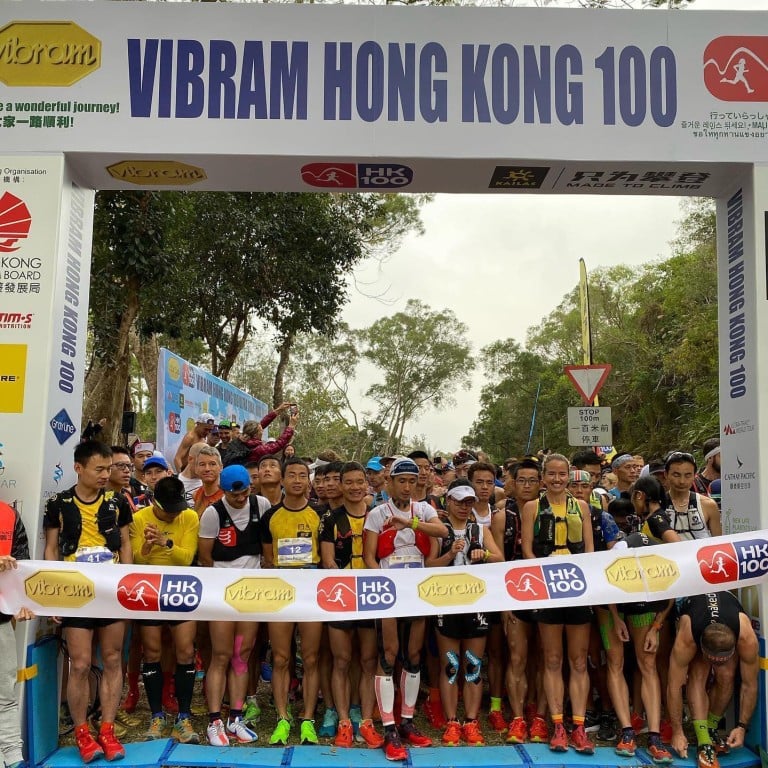
World Trail Majors launches with community spirit, aimed at countering ‘commoditisation’ of ultra running
- Hong Kong 100 directors want new series to put ‘original spirit of trail and ultra running’ back at the centre of the sport
- Launch comes in the wake allegations UTMB forced a race in Canada into extinction
A new global running series aiming to put the “original spirit of trail and ultra running” back at the centre of the sport was launched on Monday.
The World Major Trails (WTM) series will be made up of nine races, with events in Asia, Africa, Europe and the United States.
With frustration mounting at the actions of the UTMB organisation, which dominates trail running but has been accused of forcing some events out of existence, the new outfit was “a reaction to the direction of travel” in the sport.
“If we’re not careful trail running is going to turn into just another commoditised activity rather than a sport that is very much community based,” said Steve Brammar, co-director of the Hong Kong 100 and one of the brains behind the WTM.
And while officials were keen to point out that the WTM was not born with the “intention of confrontation or of solving all the problems of this fast-developing sport”, they acknowledged the actions of Ultra Trail du Mont Blanc (UTMB) had been a driver.

The idea for WTM was conceived in the wake of Covid-19, and Brammar messaged the organiser of Madeira Island Ultra-Trail to share his plans. It grew from there.
As well as events in Hong Kong and Portugal, the other seven races are: Black Canyon Ultras (US), The North Face Transgrancanaria (Spain), Mt Fuji 100 (Japan), Swiss Canyon Trail (Switzerland), South Downs Way (England), Quebec Mega Trail (Canada) and RMB Ultra-Trail Cape Town (South Africa).
According to Brammar the selection of the nine races was a rather intangible process, but he said all were well known in the ultra community and shared common values.
In a statement announcing the launch, WTM officials called the evolution of the sport “complex and sometimes erratic”.
“To help steer the sport’s development in the right direction, a handful of race organisers have formed an association that aims to return to safeguard the original spirit of trail and ultra running, using their knowledge and experience acquired over decades,” it said.
Brammar said the characteristics of each race would be protected and encouraged, so runners experienced the differences each brought, rather than travelling the world and finding all the races were the same.
From similarly humble beginnings, the UTMB has become the biggest name in the sport and the most successful commercially.
Global expansion has brought affiliated races on a world series, including this past weekend’s TransLantau by UTMB in Hong Kong. Runners have to run other races in the serious to qualify for the original UTMB event in Chamonix.
But the business has been criticised for being too commercial, and earlier this year it sent cease and desist letters to the Ultra Trail Mount Fuji demanding a name change, saying it owned the rights to any use of the words ‘Ultra Trail’. Other events have received similar letters over the past few years.
Already generating resentment in the trail running community, UTMB was dragged into a bitter row over the fate of the Whistler Alpine Meadows race in British Columbia, which was cancelled because of permit issues.
Soon after UTMB announced a race in the same place at the same time of year as the cancelled event.
UTMB, and the Whistler Blackcomb Ski Resort, which issues the permits, both deny this, with the latter citing safety concerns as a reason to deny WAM permit.
That did not stop several athletes, including professional Elie Greenwood, taking to social media to ask people to consider if they wanted to support UTMB in the future.
“I think [The WAM controversy] has brought to the surface some sort of simmering discontent in the trail running community about the way that things are going on,” Brammar said.
Still, the WTM official said he would rather focus on the benefits the new organisation could bring, rather than any issues that were impacting the sport.
“You see somebody who’s struggling, you always stop and help,” he said. “If you are overtaking someone, you always tell them to keep it going. It’s that sense of camaraderie between trail runners that I think is rare and something we should treasure.
“That spirit and community feel that you’ll have at the best races is something that all of these races will have in huge quantity.”

